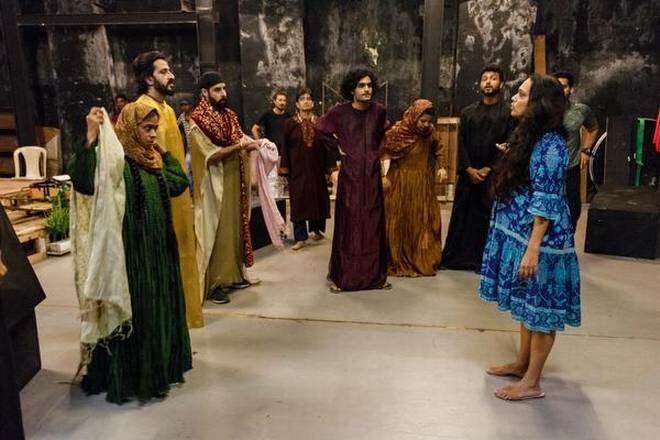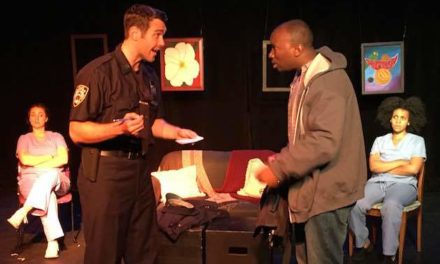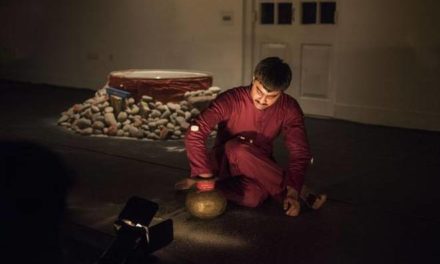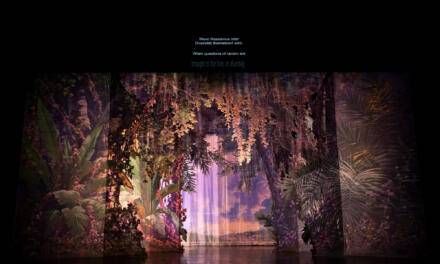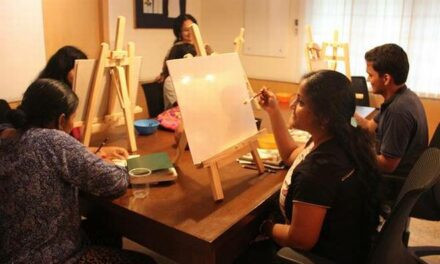The legendary Habba Khatoun comes to life in Purva Naresh’s Zoon, a play that attempts to give ordinary Kashmiris a voice, says Vikram Phukan.
Circa 1989, as the errant flames of an inchoate uprising were being fanned in Kashmir, a film by Muzaffar Ali, titled Zooni, being shot in the valley, found itself in the midst of a general upheaval, not of its making. Starring Dimple Kapadia, the film was based on the 16th century Kashmiri poetess Habba Khatoun, an empress turned itinerant hermit. Its American costume designer, Mary McFadden, described Ali’s film-in-the-making as a “Cecil B. DeMille production, with a 1,000 people in two villages to dress.”
Zooni was never completed; its shelving collateral damage to Kashmir’s own descent into an age of darkness that has persisted for decades. Now, mere months after the abrogation of Section 370, the elusive Khatoun is being resurrected on the Mumbai stage by playwright and director Purva Naresh, whose opulent musical offering Zoon, with the tagline Noor Kashmir Ka, closes this year’s Aadyam season.
Flesh and blood narrative
Naresh has frequently visited Kashmir, with her last trip coming as recently as in July, only weeks before the erstwhile state was plunged into a communications void with the looming prospect of an uncertain future. “Locals I had encountered, across all walks of life, everyone knew Habba Khatoun, or Zoon, as they called her. It was their favorite story,” she recalls. The pomp and circumstance of that tale — the wedding of a peasant girl (Zoon had humble beginnings) and a warrior king, Yousuf Shah Chak, smitten by her beauty — did not excite her as much as the fact that Khatoun soon came into her own as a celebrated poetess. “It got me thinking about what poets can do in these times,” says Naresh, whose earlier play, Umrao, had also brought out the lyrical raconteur within Umrao Jaan Ada, the eternally romanticized 19th-century Lucknavi courtesan trapped in a gilded cage.
The conscientious playwright questioned her own agency to tell a story that essentially belonged to the Kashmiri populace, for long ‘othered’ by the mainstream. “I was determined to make the people come alive with a real flesh-and-blood narrative in Zoon, far removed from how they have been portrayed in popular culture for years,” she says, with some resolve. Her production brings together distinct worlds using the tried-and-tested trope of the ‘play within the play.’ In a contemporary setting, five Kashmiri college students in Srinagar prepare to stage a dramatic retelling of Khatoun’s life and times, even as Indian soldiers hover nearby. Then, there are the period portions, set around 1570, that cover commonly known details like Khatoun’s entry into the royal household, or Yousuf’s imprisonment by Emperor Akbar, or her choosing to become an ascetic like the mystic Lal Ded, who preceded her by two centuries.
Invisible struggles
This is the second play this year from Naresh’s theatre outfit, Aarambh Mumbai, that deals with Kashmir either tangentially or directly, after Asmit Pathare’s Us and Them. In February this year, when Abhishek Majumdar’s Eidgah Ke Jinnat was pulled from shows in Jaipur, Naresh staged a protest during the staging of her own play, Bandish 20-20000 Hz, in Jaipur — the climactic sequence was performed silently sans dialogue and music. Pathare’s play used a world of magicians and crooks to drive home the idea of the smokescreen that surrounds us so insidiously. The events in Kashmir in recent months, obscured from view, but powerfully tangible in the murmurings that cannot be quelled by state machinery, have “turned on its head the basic premise of the stories we tell,” says Naresh, “We are not just talking about oppression, but something very different altogether. It is too huge to encompass and it will take us time to find a voice within us.” While Zoon is her attempt to give the common Kashmiri an identifiable face, she is not unmindful of our own complicity in their fate, “How did we allow this to happen? That is where the new stories will emerge from.”
Zoon was staged on November 16 and 17 at Jamshed Bhabha Theatre, NCPA.
This article was originally posted at thehindu.com/ and has been reposted with permission. To read the original article, click here.
This post was written by the author in their personal capacity.The opinions expressed in this article are the author’s own and do not reflect the view of The Theatre Times, their staff or collaborators.
This post was written by Vikram Phukan.
The views expressed here belong to the author and do not necessarily reflect our views and opinions.

